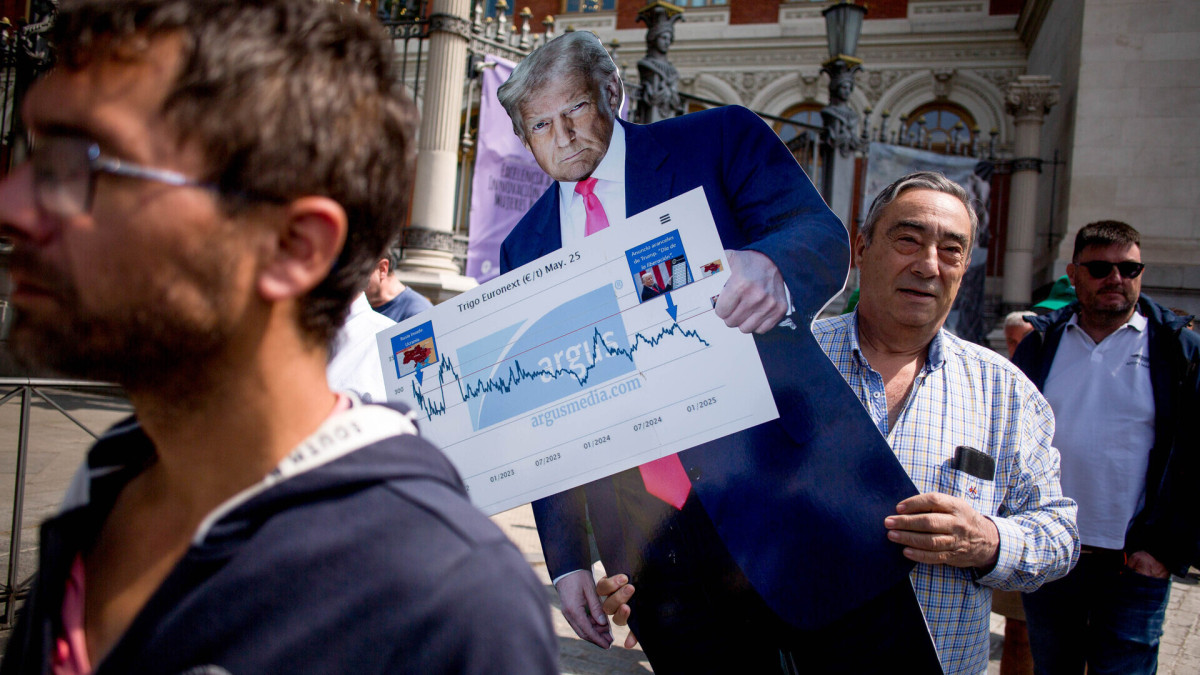Europe has clearly capitulated in the newly announced trade agreement between EC President Ursula von der Leyen and U.S. President Donald Trump, and this should cause deep concern within the EU. Far from a step forward for the Union, this pact is unbalanced in its substance and degrading in its form, accepting impositions unworthy of a longtime ally and representing an alarming decline in autonomy for the European continent. For the EU, this agreement is nothing short of a vast strategic mortgage.
An imbalanced and degrading accord
The figures speak for themselves. While a few sectors such as air travel and certain chemicals will be exempt from barriers, or subject to differential treatment, this agreement imposes a general tariff of 15% on most European goods destined for the United States, including autos, semiconductors, pharmaceuticals, and agricultural products. The EU has committed to purchasing $750 billion in U.S. energy over the next three years, also pledging around $600 billion in other investments, notably in military equipment. The pact further ensures that U.S. products will enter European markets at zero tariff, with no equivalent largesse for European exports.
“Supposed benefits for the EU, although hinted at, have not materialized, spotlighting an alarming absence of guarantees, transparency, or reciprocity”
Supposed benefits for the EU, although hinted at, have not materialized, spotlighting an alarming absence of guarantees, transparency, or reciprocity – three elements fundamental to any fair and equitable trade relationship. This trade deal folds in the face of demands wholly unbefitting a relationship between allies.
Based on false premises, the pact has been justified by way of an alleged current trade imbalance that the data does not support. The underlying logic at play is nothing less than blackmail under the threat of new barriers imposed by the U.S., and this capitulation can in no way serve European interests. On the contrary: it amounts to a policy of appeasement and concession that weakens the EU’s position on the global stage. In this denigrating spectacle, Europe has buckled to brute pressure, sacrificing its principles and strategic dignity. Likely contributors to this agreement include Europe’s dependency in security and its tendency to view the future of Ukraine through a rear-view mirror.
The consequences for European autonomy
The implications of this agreement range far beyond economic practice. For the EU, this is a strategic mortgage that compromises Europe’s autonomy and its ability to act independently. An understandable desire to avoid trade wars cannot be allowed to guide us, whether in trade policy or foreign policy. As former chief IMF economist Olivier Blanchard has said: “When the law of the jungle prevails, the weak have no choice but to accept their fate. But Europe could have been strong. It could have achieved a better deal and sent a strong message to the world. This was a missed opportunity.”
“Concerns that the new tariffs may be here to stay, even beyond the Trump era, must be confronted without naïveté”
Furthermore, this pact has highlighted divisions within the European Union. Under the agreement, some countries and key segments (such as Germany or the automotive sector) may see tariffs reduced, while others (such as Spain’s olive oil exports) will suffer the consequences. The lack of a firm and unified stance in the face of U.S. bullying weakens the EU as a bloc and exposes us to future pressures. Concerns that the new tariffs may be here to stay, even beyond the Trump era, must be confronted without naïveté.
Europe must speak with its own voice
Europe deserves more. We need a trade policy based on principles, not fear, that allows us to speak with our own voice and to act with strategy and dignity in the global arena. The transatlantic relationship must be rooted in mutual respect, not pre-emptive submission. The European Union must regain its negotiating capacity and defend its interests firmly, rejecting both extortion and external pressure. And we must be frank about the circumstances that have led us to this point: an overwhelming conservative majority in the European Commission, and a Council incapable of stalwart defense of the overall European interest.
A stronger, fairer, and more autonomous Europe can and must be built, but this can only happen through the tireless efforts of Europeans. I envision a Europe that is not just a relevant actor in economic terms but a geopolitical leader that champions its values and interests despite an increasingly hostile environment. The future of Europe depends on our ability to act with autonomy, unity, and determination, both at home and around the world.
